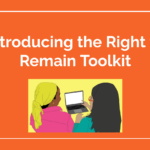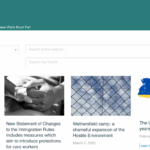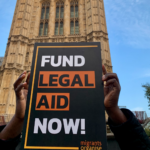
Today, on 11 April, the government has introduced changes to the minimum income requirements for applying for a family visa.
The minimum income threshold for applying for a spousal visa has been increased to £29,000 with plans for further increases.
If you are settled in the UK, or a British citizen, and you would like to bring a partner from abroad to live with you, this change in visa policy could affect you.
What do these changes mean?
These changes were first announced by the government on 4 Dec 2023, as part of a package of measures to reduce overall migration to the UK.
Before this change, the minimum income requirement was £18,600, and it has now been increased to £29,000. The government is planning to make another increase to £38,700, and has stated this will be in early 2025.
However, there will be a general election before 28 January 2025, so it is possible there will be a change of government before the full increase to £38,700 is made. A new government could decide to scrap these changes.
The government is making its intentions clear that you can only migrate to the UK if you are wealthy.
Research from the Migration Observatory shows that this new threshold means that 50% of British citizens would not be able to sponsor a foreign spouse, and this will rise to 70% in 2025 if the income requirement is further increased.
These plans will have devastating effects on people exercising their rights to family life. More families will be cruelly separated from one another. Parents will continue to be separated from their children because they do not earn enough money to qualify for a visa.
These changes will also have a disproportionate effect on women and young people who tend to be lower earners, as well as those who live outside of the South East of England where wages are generally lower.
What happens if you cannot meet the minimum income requirement?
If you cannot meet the minimum income requirement to apply for a visa under the immigration rules in Appendix FM, there are some cases in which you might be granted leave to enter or remain if you can show that there are exceptional circumstances in your case.
Applications along these lines are complex, and you must show that refusal of leave would result in very harsh consequences for you and your family. You must provide strong evidence to explain the circumstances of your case.
For example, if your income is below the threshold, but exceptional circumstances apply in your case, you may be able to show that you can rely on other forms of support (such as from another family member in the UK, or future earnings).
It is a good idea to get legal advice for these types of applications.
The bottom line is that this rule change will separate families.
To take action, email your MP to express your opposition to these plans using the template from Praxis.
As always,
#MigrationIsLife
#NoOneIsIllegal
#TheseWallsMustFall














The Government’s heartlessness is clear, but many people will be delighted that it thinks the minimum salary for skilled workers is £38,700, given that entry level positions in nursing start at £31,200 per year, teaching at £30,000, junior doctors basic pay can start at about £30,000, while engineers start at over £34,000. A minimum general salary of £38,700 would be a big boost for many skilled workers, particularly in the borders.
The average salary in Scottish Borders is £29,708 per year. Males earn 4.2% more. Salaries in Scottish Borders are 11.01% less than the national average of £33,384 (source).